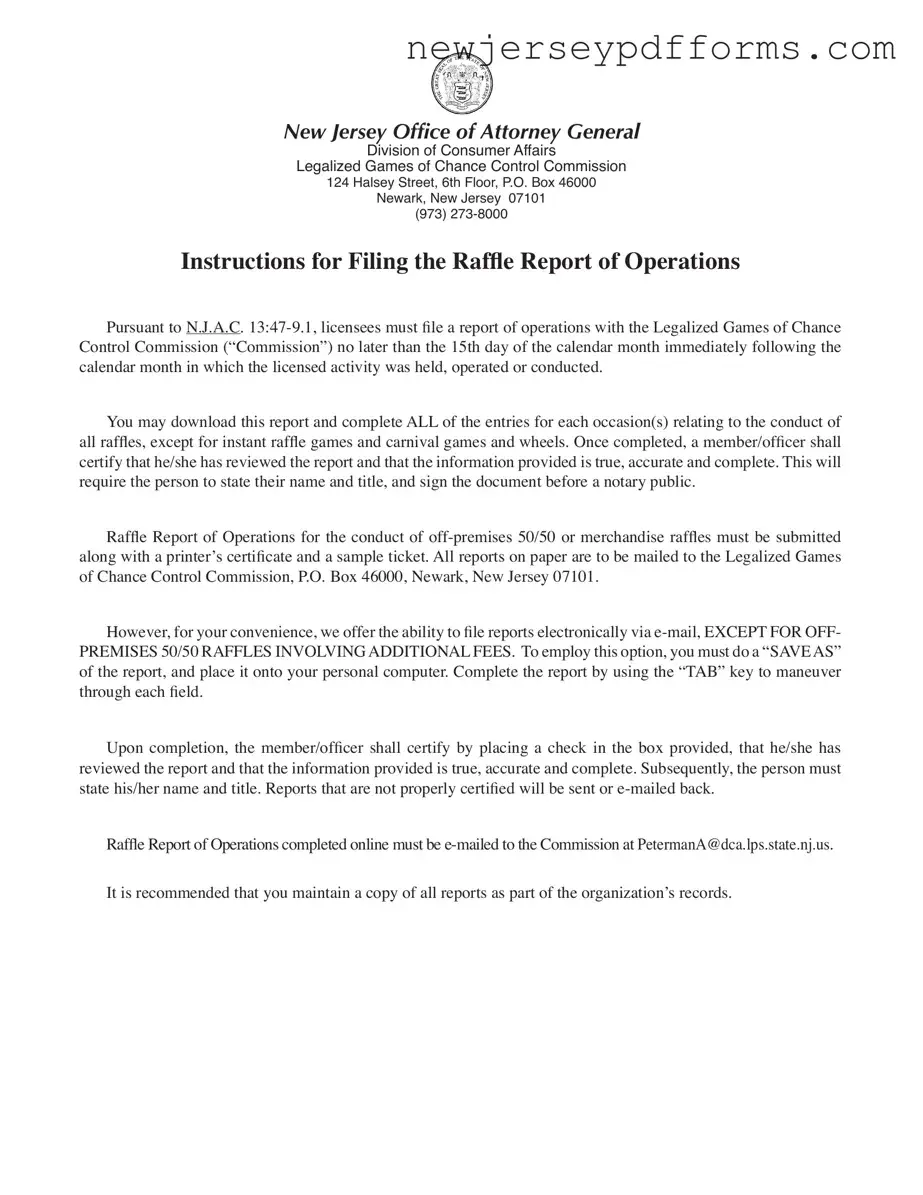What is the NJ Raffle Report form?
The NJ Raffle Report form is a document required by the Legalized Games of Chance Control Commission in New Jersey. It must be filed by organizations that conduct raffles to report their operations. This includes details about ticket sales, expenses, and net proceeds from the raffle activities. The form ensures transparency and compliance with state regulations regarding legalized games of chance.
When is the NJ Raffle Report form due?
The report must be submitted no later than the 15th day of the month following the month in which the raffle was held. For example, if a raffle took place in January, the report should be filed by February 15th. Timely submission is crucial to avoid penalties or complications with your organization's licensing.
Who is responsible for filing the NJ Raffle Report?
The responsibility for filing the report falls on the licensee, typically an officer or member of the organization that conducted the raffle. This individual must certify the accuracy of the report by signing it in front of a notary public, ensuring that all information provided is truthful and complete.
What information is required on the NJ Raffle Report form?
The form requires various details, including the date and type of the raffle, the number of tickets sold, ticket prices, gross receipts, costs of prizes, and total expenses. Additionally, organizations must report on net proceeds and provide a list of prizes awarded along with their retail values. Accurate record-keeping is essential, as this information substantiates the report.
Can the NJ Raffle Report be filed electronically?
Yes, the NJ Raffle Report can be filed electronically via email, except for off-premises 50/50 raffles that involve additional fees. To file electronically, you must save the completed report on your computer and email it to the designated address. Ensure that the report is properly certified before submission, as improperly certified reports will be returned.
What happens if the NJ Raffle Report is not filed on time?
If the report is not filed by the deadline, the organization may face penalties or complications with their raffle license. It is important to adhere to the submission timeline to maintain compliance with state regulations and avoid potential legal issues.
Do I need to keep copies of the NJ Raffle Report?
Yes, it is recommended that organizations maintain copies of all submitted reports as part of their records. Keeping these documents can help in case of audits or inquiries from the Legalized Games of Chance Control Commission. Proper record-keeping supports transparency and accountability in your organization’s fundraising efforts.
What should I do if I have questions about the NJ Raffle Report form?
If you have questions or need assistance regarding the NJ Raffle Report form, you can contact the Legalized Games of Chance Control Commission directly at (973) 273-8000. They can provide guidance on completing the form and any other inquiries related to raffle operations in New Jersey.

